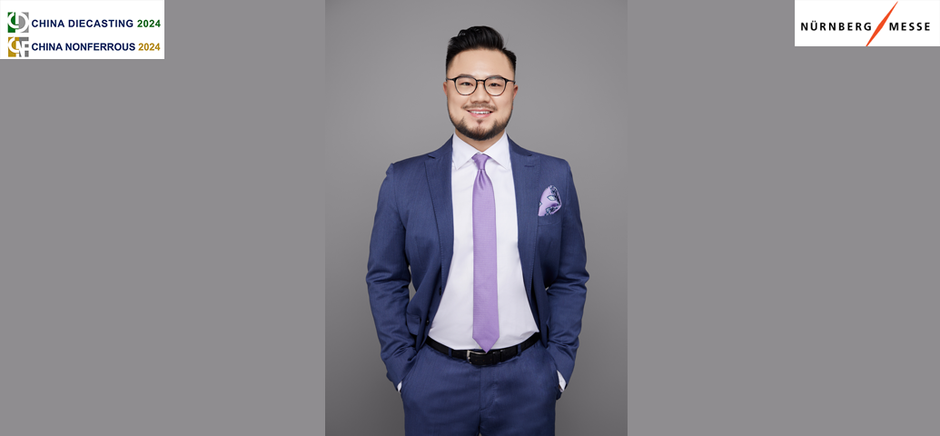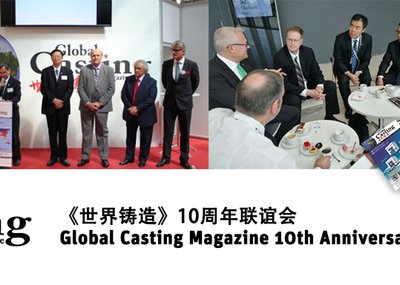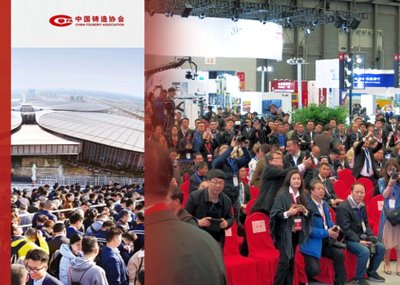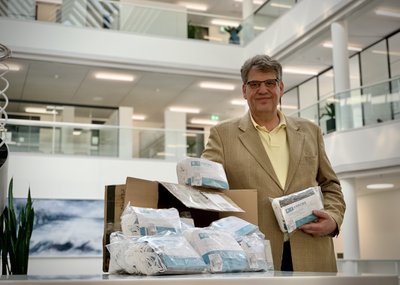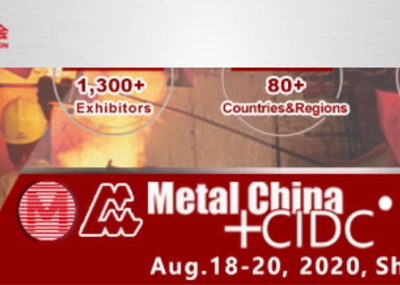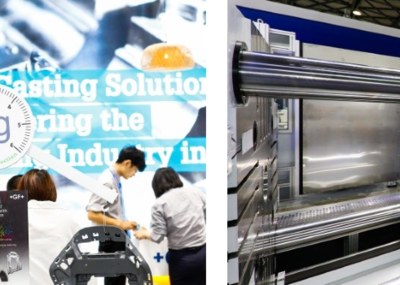- The exhibition China Diecasting & China Nonferrous has positioned itself as the leading global service platform for the die casting industry in China. What is the current potential of die casting in China and how is the industry developing?
Die casting is a significant manufacturing process in China, particularly within the automotive, electronics, and machinery industries. China remains one of the world's leading producers of die-cast components, owing to its large manufacturing infrastructure, skilled labour force, and access to raw materials.
The potential for die casting in China is substantial and continues to grow. Factors such as technological advancements, automation, and increasing demand for lightweight and complex components are driving the growth of the die casting industry in the country. Additionally, the Chinese government's initiatives to promote innovation and upgrade manufacturing capabilities are also influencing the development of the die casting sector.
Furthermore, China's position as a global manufacturing hub and its integration into global supply chains contribute to the industry's growth by providing ample opportunities for export and collaboration with international companies.
However, challenges such as environmental regulations, rising labour costs, and competition from other low-cost manufacturing countries may impact the industry's growth trajectory. Nonetheless, with ongoing investments in research and development, adoption of advanced manufacturing technologies, and focus on sustainability, the die casting industry in China is poised for continued expansion and innovation.
- Given the rapid development of die casting technology, what trends or innovations will you be showcasing at this year's show? Is it all about mega, giga, ultra and large castings and what is the role of digitalisation?
With the integration of die casting having been underway in the industry for 5 years, this year, we will focus on in-depth analysis of how to balance the contradiction between cost control and customization in the process of scale and customization production of integrated die casting and provide new guidance for the versatility of integrated die casting. Secondly, we will pay more attention to the application of 3D printing in the die casting process. With the intervention of 3D printing technology, under the background of rapid technological iteration in the automotive manufacturing industry, how die casting factories can quickly complete the updating of mold development, repair, and modification work content.
- What lightweight materials are in the spotlight?
Aluminium alloys, magnesium alloys, copper alloys, and other alloy materials have garnered significant attention in the die-casting industry. This is primarily due to their lightweight, high strength, corrosion resistance, and other characteristics, which meet the modern manufacturing industry's demand for energy-saving, environmentally friendly, and high-performance materials, especially in applications such as automotive, aerospace, electronics, and others. In addition, some composite materials have also found widespread application in the die-casting industry, such as parts composed of aluminium alloys and carbon fibre composites.
Sustainability and environmental protection are gaining importance in China
- Sustainability and environmental issues are influencing manufacturing worldwide. Could you explain how important these issues are in the Chinese die casting industry?
Sustainability and environmental concerns have become increasingly important in the Chinese die casting industry, mirroring global trends in manufacturing. Here's how these issues are influencing the industry in China:
Environmental Regulations: The Chinese government has been implementing stricter environmental regulations to address pollution and promote sustainable development. This includes regulations related to emissions, waste management, and energy consumption. Die casting companies are required to comply with these regulations, which often involve investing in cleaner production processes, reducing emissions, and implementing waste reduction measures.
Energy Efficiency: Energy efficiency is a key focus in the Chinese die casting industry to reduce carbon emissions and minimize environmental impact. Manufacturers are investing in technologies and equipment that improve energy efficiency, such as high-pressure die casting machines with energy-saving features, optimized process parameters, and efficient cooling systems.
Material Recycling: Die casting generates scrap material during the manufacturing process, such as sprues, runners, and defective parts. Chinese die casting companies are increasingly adopting recycling practices to minimize waste and conserve resources. Scrap material can be recycled and reused to reduce the demand for virgin materials, thereby lowering environmental impact and saving costs.
Green Materials and Processes: There is growing interest in using eco-friendly materials and processes in die casting to reduce environmental footprint. This includes the use of recycled aluminium alloys, bio-based lubricants, and environmentally friendly surface treatments. Additionally, innovations in process optimization and waste reduction contribute to greener manufacturing practices.
Life Cycle Assessment: Some Chinese die casting companies are conducting life cycle assessments (LCAs) to evaluate the environmental impact of their products throughout their entire life cycle, from raw material extraction to end-of-life disposal. By identifying hotspots and areas for improvement, manufacturers can make informed decisions to minimize environmental impact and enhance sustainability.
Overall, sustainability and environmental issues are increasingly important considerations in the Chinese die casting industry. Companies that prioritize environmental responsibility not only comply with regulations but also gain competitive advantages by reducing costs, improving efficiency, and meeting the demands of environmentally conscious customers worldwide.
- Collaboration and knowledge sharing are key to the industry's progress. What initiatives or forums at this year's event aim to promote intellectual development and mutual learning among participants?
The transformation of the global new energy vehicle market and supply chain has brought about a new landscape for the global development of the die casting industry. This year's exhibition will focus on the new global pattern of die casting, actively inviting industry experts from Europe, Mexico, Southeast Asia, and India to the venue to share insights and foster collaborations.
Over the course of two days, there will be more than 10 thematic forums, including the " Seminar on the Development and Cooperation of International Die Casting Market," " Seminar on New Energy Vehicles and Car Body Lightweight," and " Seminar on Smart Factory - Intelligent Manufacturing," among others. These forums will lead the die casting industry towards the latest trends and innovations!
Dedicated networking zones at the exhibition
- "The exhibition not only showcases products, but also serves as a platform for business and market opportunities. What opportunities will you offer visitors this year to make networking and business initiation as easy as possible for exhibitors and attendees?"
This year, we are introducing several initiatives to make networking and business initiation as seamless as possible for both exhibitors and visitors. These include:
Dedicated Networking Zones: We will set up designated areas specifically designed for networking, where exhibitors and visitors can meet, interact, and discuss potential collaborations in a relaxed environment.
Matchmaking Services: We are implementing advanced matchmaking algorithms and tools to connect exhibitors with potential buyers or partners based on their interests, preferences, and business objectives.
Interactive Digital Platforms: Our digital platforms will allow exhibitors and visitors to engage with each other before, during, and after the event. Through our digital platform, our customers can enjoy more personalized services and more precise matchmaking.
Overall, our goal is to create an inclusive and conducive environment where exhibitors and visitors can easily connect, explore opportunities, and initiate fruitful business relationships.
- In July 2024, Shanghai will host several casting, die casting and aluminium exhibitions. What makes China Die Casting different?
From an application perspective, the automotive manufacturing industry is the most extensive and critical sector for die casting applications. Currently, highly popular electric and hydrogen-powered vehicle manufacturing both require these technologies, making it crucial for our exhibition. In the future, we may differentiate and amplify our exhibition's advantage in terms of homogeneity by fully presenting certain segments of the automotive manufacturing industry's supply chain on-site at the exhibition.
Thank you, we wish you a successful show!

